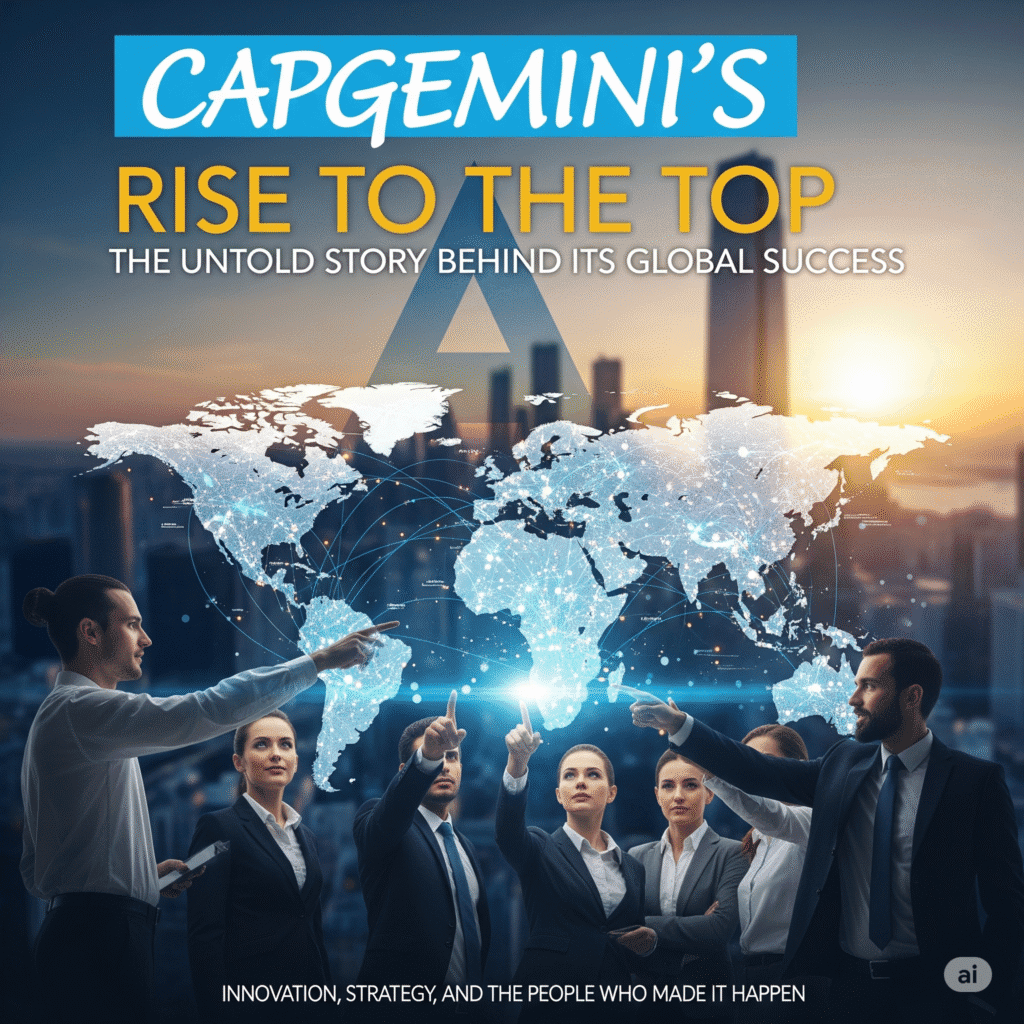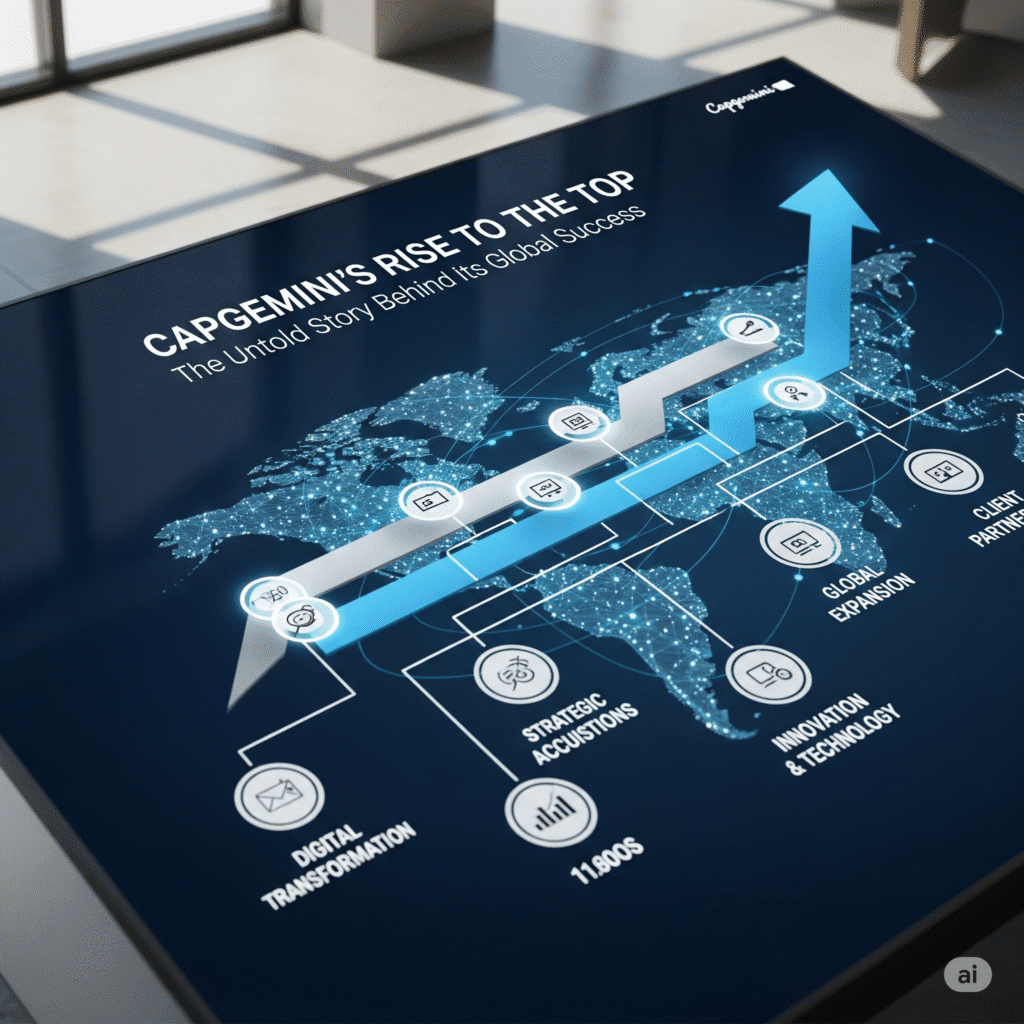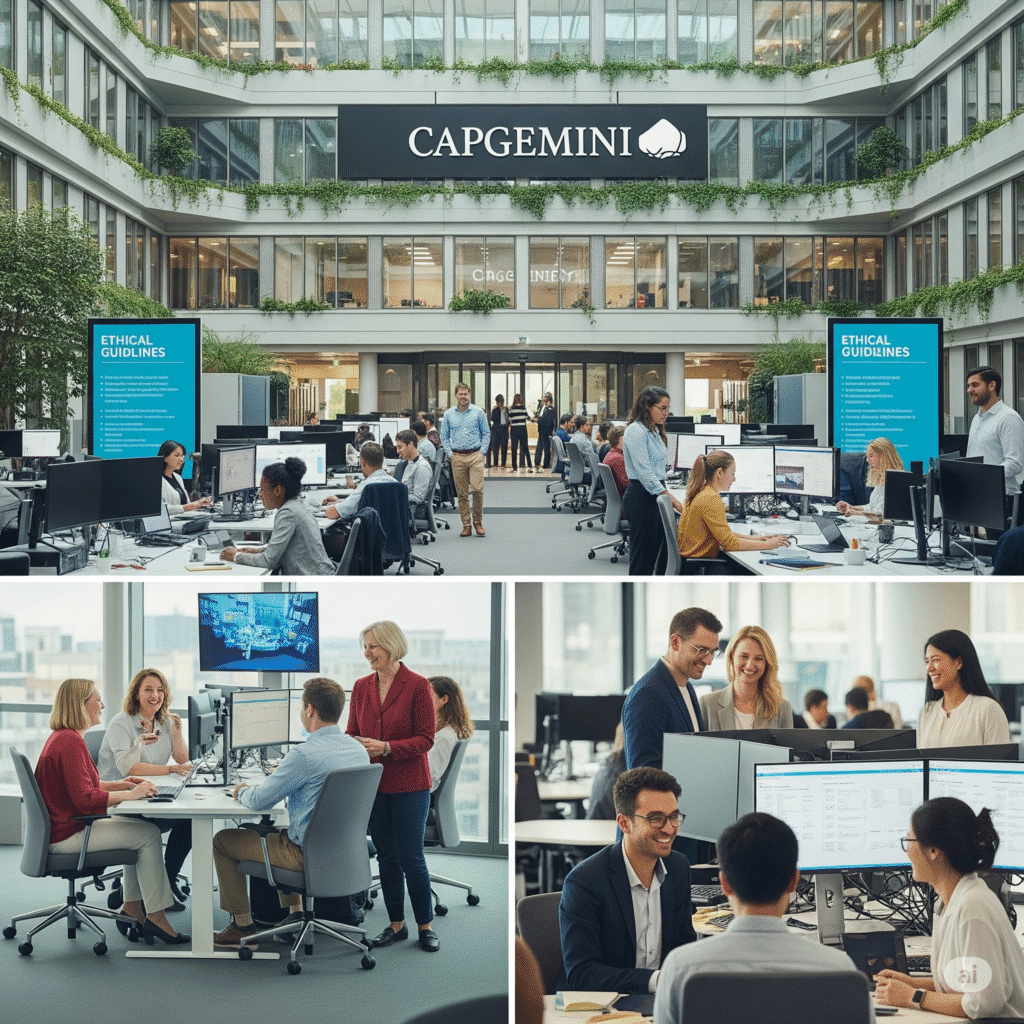
A Strategic Journey to Global Leadership
Capgemini’s extraordinary ascent from a modest IT firm to a world-leading consulting and digital transformation powerhouse reflects a forward-thinking blend of innovation, strategic acquisitions, and talent empowerment. In this expansive, conversational—and SEO-optimized—article, we unpack the core strategies that propelled Capgemini to the summit of the global services ecosystem. Expect bolded highlights, a minimum of 10 headings, and rich, unique narrative—enhanced with authoritative external links for illustration and added credibility.
History & Evolution of Capgemini (Wikipedia) • Capgemini 2024 Integrated Annual Report • Capgemini Innovation Ecosystem • Capgemini Ethical Culture
1. Foundations and Early Global Moves
Capgemini began in 1967, when Serge Kampf founded Sogeti in Grenoble, France, focusing on enterprise management and data processing Wikipedia. In the mid-1970s, strategic acquisitions—including Gemini Computer Systems (1974) and CAP (1975)—catalyzed international rebranding as Cap Gemini Sogeti Wikipedia. The firm’s expansion continued with the launch of U.S. operations via acquiring DASD Corp. in 1981 and the Hoskyns Group in the UK in 1990 Wikipedia.
2. Rebranding & Strategic Expansion
By 1996, the company streamlined its brand to Cap Gemini, reflecting increased cohesion and global identity Wikipedia. A major inflection point came in 2000 with the acquisition of Ernst & Young Consulting, forming Cap Gemini Ernst & Young, significantly strengthening its consulting portfolio Wikipedia.

3. Accelerating Growth via Acquisitions
Capgemini’s expansion gained momentum through a suite of high-impact acquisitions:
- Kanbay (2006) expanded its India footprint ($1.25 billion) Wikipedia.
- iGATE (2015), a $4 billion acquisition, integrated a major U.S. technology services firm Wikipedia+1.
- LiquidHub (2018) boosted North American digital and cloud capabilities Wikipedia.
- Altran (2019), the largest acquisition to date, added engineering and R&D capabilities, expanding Capgemini Invent and Engineering divisions Wikipedia+1.
Recent acquisitions like Syniti, Design + Industry Pty Ltd., Delta Capita, and WNS in 2025 further extended its digital services and AI capacities OwlerFinancial TimesWikipedia.
4. Innovation Engine: Ecosystems & Labs
Capgemini’s innovation prowess relies on a robust ecosystem: 90+ research facilities, deep partnerships with Berkeley, MIT, and Oxford, and rigorous annual evaluation of 1,000+ emerging technologies via the TechnoVision framework reports.capgemini.comCapgemini. Meanwhile, Applied Innovation Exchange (AIE) centers serve as innovation incubation hubs, enabling ideation through commercialization reports.capgemini.comCapgemini.
5. Talent Development Through Capgemini University
Capgemini University is central to ongoing workforce upskilling, offering diverse learning campuses in Gen AI, Cloud, Data & AI, Cybersecurity, and more—ensuring employees remain at the forefront of technological shifts reports.capgemini.com+1. Remarkably, since October 2023, over 150,000 employees have been trained via the Gen AI Campus reports.capgemini.com. A Sustainability Campus, launched in June 2022, promotes environmental awareness among the workforce reports.capgemini.com.
6. Building an Inclusive and Ethical Corporate Culture
Capgemini emphasizes an ethical culture anchored in values: Honesty, Boldness, Trust, Freedom, Fun, Modesty, and Team Spirit, guiding behavior across the global workforce Capgemini. Its unwavering ethics have earned it recognition as one of the World’s Most Ethical Companies® by Ethisphere for ten consecutive years Capgemini. Additionally, diversity and inclusion are embedded in Capgemini’s core DNA, nurturing a culture where over 120 nationalities flourish together Capgemini.

7. Innovation Culture That Empowers Everyone
From Innovation Awareness Week to inclusive learning platforms, Capgemini champions the belief that innovation is everyone’s superpower. This signature initiative won a 2023 HRO Today Award, fostering a culture of experimentation, storytelling, and business value creation across the organization Capgemini.
8. Sustainability and Responsible Leadership
Capgemini’s learning offerings emphasize sustainability via the Sustainability Campus, making climate literacy mandatory among employees since August 2024. It reflects a broader commitment to purpose-led innovation and ethical business practices reports.capgemini.com.
9. Strategic Focus on AI and Intelligent Operations
The 2025 acquisition of WNS for $3.3 billion marks a bold pivot toward AI-powered business process services, particularly emphasizing agentic AI and intelligent operations—fusing WNS’s process strengths with Capgemini’s tech and scale Financial TimesThe Times of IndiaIndiatimes. WNS’s CEO described the merger as an “industry-defining moment” and a strategic step to expand intelligent operations in a largely untapped global BPS market The Times of India.
10. Regional Momentum and Local Adaptation
In Spain, Capgemini Spain has tripled its size post-Altran acquisition and employs 11,000 professionals—with plans to hire 1,500 more in 2025 in roles like analysts and consultants, especially around generative AI, cloud, cybersecurity, and SAP El PaísCinco Días.
Conclusion
Capgemini’s journey to global prominence is powered by strategic acquisitions, a thriving innovation ecosystem, a culture of continuous learning, and ethical, inclusive leadership. From foundational mergers to cutting-edge labs and AI-first strategies, each step reflects a company attuned to the future while empowered by a strong value base. With its bold investments in AI, sustainability, and talent, Capgemini isn’t just behind the stories of digital transformation—it’s writing them.




